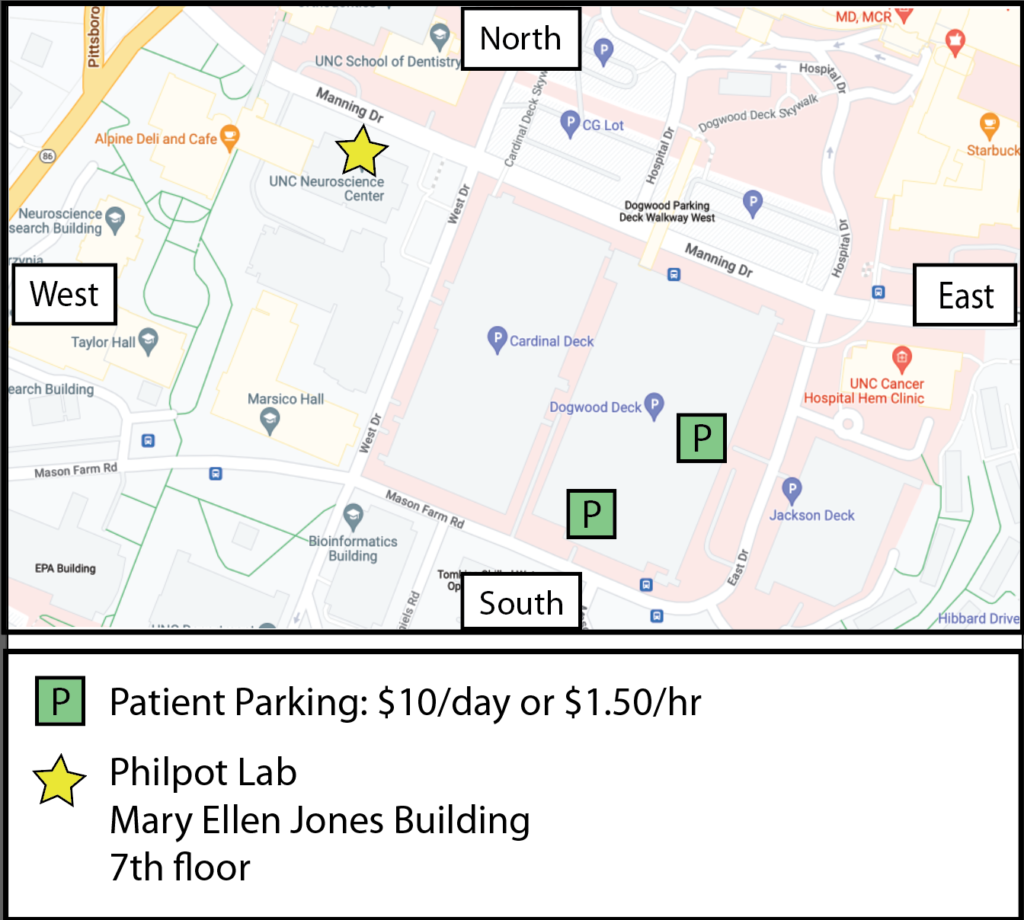

Welcome
to
the Philpot lab
University of North Carolina at Chapel Hill
Therapeutic
approaches
for neurodevelopmental disorders
Philpot
lab
is affiliated with
UNC Neuroscience Center, an innovative, collaborative, and translational interdepartmental research center
RESEARCH FOCUS
Angelman syndrome
A severe genetic disorder caused by mutations or deletions of the maternally inherited UBE3A gene. UBE3A encodes an E3 ubiquitin ligase that is expressed biallelically in most tissues but is maternally expressed in almost all neurons. The Philpot group takes a multidisciplinary approach to understand molecular and physiological mechanisms underlying AS and to identify potential therapeutic targets.
Pitt-Hopkins syndrome
A rare neurodevelopmental disorder caused by mutation or deletion of the transcription factor 4 gene. TCF4 encodes a basic helix-loop-helix transcription factor that regulates gene transcription through homodimerization or heterodimerization with other bHLH transcription factors. The Philpot lab has been advancing genetic therapy approaches and identifying small molecule activators that upregulate Tcf4 expression as potential PTHS therapeutics.
Dup15q syndrome
A clinically identifiable syndrome which results from duplications of chromosome 15q11.2-13.1. In most cases of chromosome 15q11.2-13.1 duplication syndrome, the chromosome duplication occurred as a random event during the formation of reproductive cells or during early embroyonic development. The Philpot lab has been developing a new mouse model of Dup15q syndrome for preclinial translational studies.
Investigating molecular and circuit mechanisms for neurodevelopmental disorders
We aim to discover novel therapeutic opportunities
